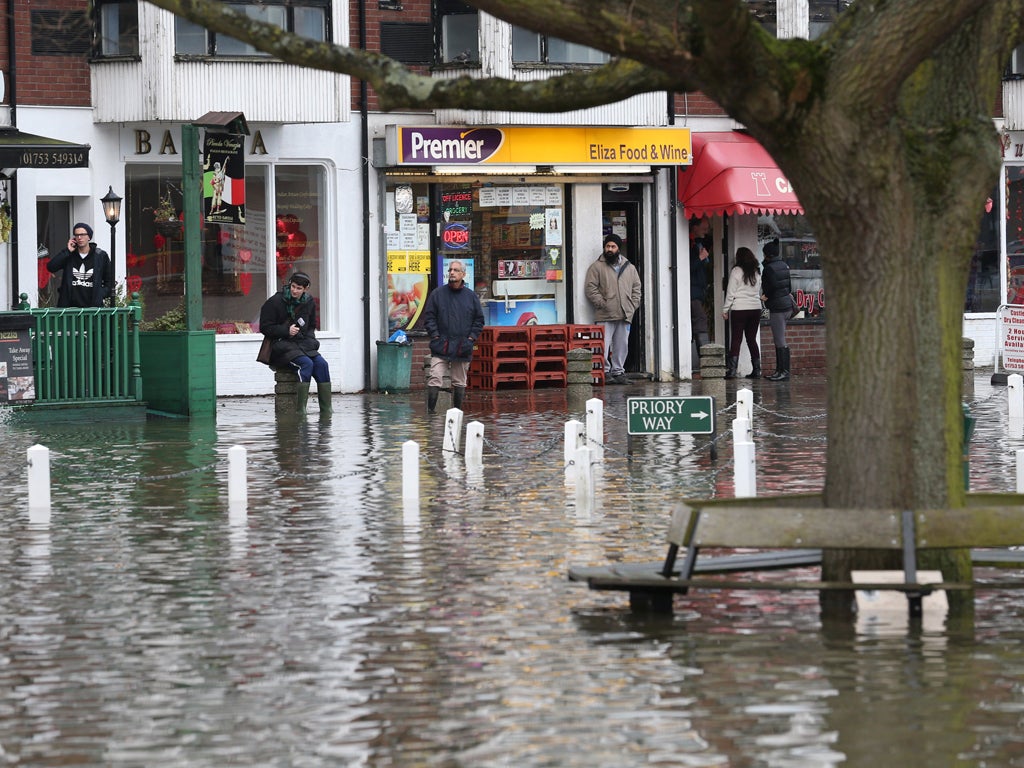What Cameron must do to sort out the flooding mess
Dredging is no silver bullet. We need much more than that


Your support helps us to tell the story
From reproductive rights to climate change to Big Tech, The Independent is on the ground when the story is developing. Whether it's investigating the financials of Elon Musk's pro-Trump PAC or producing our latest documentary, 'The A Word', which shines a light on the American women fighting for reproductive rights, we know how important it is to parse out the facts from the messaging.
At such a critical moment in US history, we need reporters on the ground. Your donation allows us to keep sending journalists to speak to both sides of the story.
The Independent is trusted by Americans across the entire political spectrum. And unlike many other quality news outlets, we choose not to lock Americans out of our reporting and analysis with paywalls. We believe quality journalism should be available to everyone, paid for by those who can afford it.
Your support makes all the difference.As residents, farmers and businesspeople continue to struggle just to get by across much of the South West of England and beyond, there’s a great deal of very distasteful debate and finger-pointing around the floods.
Secretary of State for Communities and Local Government Eric Pickles is trying to blame the Environment Agency, a Somerset Level Tory launched an astonishing stream of playground-level invective at its head, and both Labour and Tory parties have tried to insist the fault lay with each other’s record in government.
The fact is, both parties have a very poor record. In 2007 the National Audit Office pointed out that the Labour government’s funding was £150 million a year short of what was needed to achieve its own target, a very modest target, to maintain 63 per cent of existing flood defences in good order. Since then, the government has cut spending on flood defences by 15 per cent. That’s in addition to overall funding cuts to the Department for Environment, Food and Rural Affairs (Defra) of 36 per cent, with further cuts planned that could see 550 staff who are now dealing with flooding being made redundant.
But past spending patterns are now history. We can’t go back in time and take actions that might have prevented damage today. What we need to do is move forward. David Cameron’s announcement of £100m for repairing damage and extra flood defences is a small step in the right direction, with the stress on 'small'.
What he should be doing is immediately announcing the reversal of all cuts in Defra – or at the very least to the cuts in staff dealing with flooding and climate change. As the Met Office’s chief scientist said on 10th February “all of the evidence points” to a link to climate change in the severity and length of the severe weather Britain has experienced in recent weeks.
And while Mr Cameron’s clinging to the restoration of dredging, as a simple, silver bullet answer – against much expert scientific advice – it’s clear that what is need is detailed whole catchment management planning right across England and Wales.
That means looking at tree planting across catchments and particularly in catchment areas, considering farming practices that reduce run-off, increasing soil organic matter, allowing rivers to return to natural meandering shapes, ending the building of new homes on floodplains and ensuring sustainable drainage systems that hold water are built on new estates, and, in some places, deliberately breaching sea walls to allow the restoration of wave-absorbing salt marsh … the list goes on, the answer will be detailed, and different for each catchment and local situation.
Sound catchment management planning requires staff, resources, expertise and cash. And sound, level-headed leadership. Almost as importantly, Mr Cameron should get rid of his Environment Secretary Owen Paterson.
To have a man who clearly has no grasp of the reality of climate change (or indeed of science – just look at his approach to the badger cull) – is now, more clearly than ever, wildly inappropriate – and an insult to all of those suffering with the floods now.
Paterson in his rhetoric (telling a Tory Party fringe that there were positive sides to climate change and suggesting many were over-emotional about it) and his actions (since he took office, spending on climate change has almost halved) has demonstrated his extreme unsuitability for the role he occupies.
In 2015 voters will have the opportunity to restructure the Parliament – maybe elect enough Green MPs for a proper Environment Secretary – Green MP Caroline Lucas, for example. But, before then, Mr Cameron could make a start on improving infrastructure spending and resilience planning, particularly in transport - the lack of which has been all too clearly demonstrated by the cutting off of rail services to Cornwall. No major part of the country should be served by a single, highly vulnerable rail line, and retracking of two alternative routes should be urgently considered.
Over to you Mr Cameron…
Join our commenting forum
Join thought-provoking conversations, follow other Independent readers and see their replies
Comments